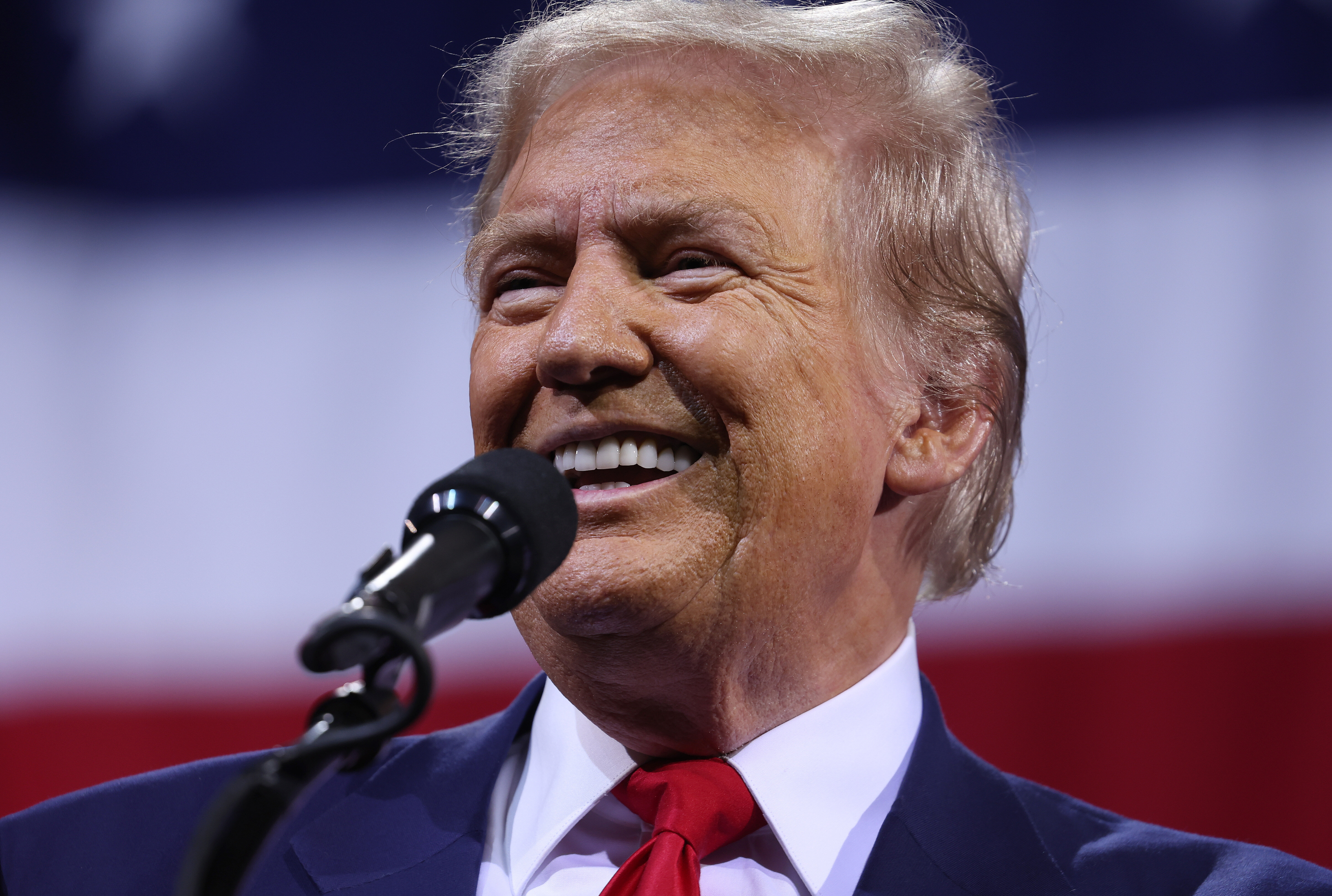At his first post-debate rally on Thursday, Donald Trump said he would end taxes on overtime work if he were elected president again.
“We will end all taxes for overtime,” Trump declared in Tucson, Arizona. “That gives people more of an incentive to work. It gives the companies… it’s a lot easier to get the people.”
Ending taxes on overtime pay would require an act of Congress. It could shrink tax revenue and incentivize working well beyond a 40-hour week.
The idea is reminiscent of Trump’s highly problematic proposal to end taxes on tips, which could prompt employers to shift workers’ pay from normal wages to gratuities and accelerate the phenomenon of “tip creep.” (His Democratic opponent, Vice President Kamala Harris, proposed the same policy after Trump.)
On Thursday, Trump, without naming anyone, claimed experts had told him the no-taxes-on-overtime idea was “unbelievable.”
“I went to some economists, great ones, and I said, ‘What do you think?’” Trump told the crowd. “They said, ‘It would unbelievable. You’d get a whole new workforce.’”
But some real economists on social media weren’t too hot on the concept.
Arindrajit Dube, an economics professor at the University of Massachusetts Amherst, joked on X that we should “subsidize all types of work except for a regular job with regular working hours and regular forms of pay.”
“Taking taxes off very particular forms of compensation (overtime, tips, etc.) is an absolutely terrible way to structure wage policies,” Dube said.

Ernie Tedeschi, former chief economist at the White House Council of Economic Advisers under President Joe Biden, said Trump’s tax ideas could perhaps help workers weather the high cost of his tariff plans.
“Get a tipped overtime job,” he quipped.
Trump didn’t mention it during his Tucson rally, but he already has a record on overtime policy from his time as president.
Unlike hourly employees, most workers paid on salary are not guaranteed time-and-a-half pay when they work more than 40 hours in a week. Trump’s White House predecessor, Barack Obama, rolled out an ambitious plan to expand overtime protections to millions more salaried workers.
But business groups sued to stop Obama’s rule from taking effect, and then Trump won the presidency. Once he was in the White House, Trump rolled out a watered-down version of Obama’s proposal that gave far fewer people overtime pay.
The Economic Policy Institute, a progressive think tank that was influential in crafting the Obama plan, said that Trump’s rule was a betrayal of his campaign promises to help the working class.
“This administration is effectively turning its back on millions of workers,” the group said at the time.
Disclaimer: The copyright of this article belongs to the original author. Reposting this article is solely for the purpose of information dissemination and does not constitute any investment advice. If there is any infringement, please contact us immediately. We will make corrections or deletions as necessary. Thank you.
